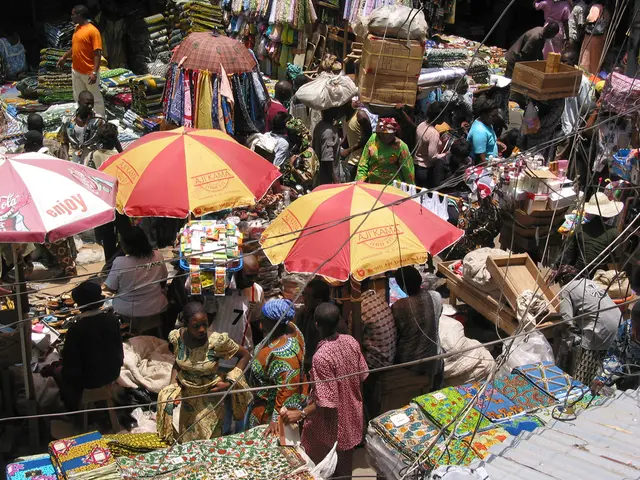Struggling Trade Relations with India Lead Bangladesh to Pursue New Allies
In a significant shift in trade relations, Bangladesh, led by Chief Adviser Professor Muhammad Yunus, has been actively pursuing increased trade with Southeast Asian nations, particularly Malaysia, following deteriorating relations with India.
India, which has had concerns about dumping and previously imposed an anti-dumping duty on jute products from Bangladesh, has taken several measures to restrict trade. These include the withdrawal of the transhipment facility for exporting various items to the Middle East, Europe, and other countries, except Nepal and Bhutan, on April 9. Additionally, India imposed port restrictions on the import of certain goods like ready-made garments and processed food items from Bangladesh on May 17.
However, raw jute imports from Bangladesh were kept outside the purview of the anti-dumping duty. Despite this, the ban on certain jute products and ropes from Bangladesh through all land routes, effective from May 17, has caused a drop in domestic jute prices in India.
In contrast, Bangladesh-Malaysia trade relations have been on the rise. In the financial year 2023-24, Bangladesh exported goods worth $1.57 billion to India, accounting for 3.75% of the nation's total export earnings. However, in 2024, total trade between Malaysia and Bangladesh reached approximately USD 2.92 billion (RM13.35 billion), a 5.1% increase from 2023, with Bangladesh being Malaysia’s second-largest trading partner in South Asia.
The increased trade is driven by several factors. The diversification and growth of export sectors in Bangladesh, particularly in manufacturing and textiles, have created strong year-on-year growth. The complementary nature of trade goods, with Malaysia exporting petroleum products, palm oil, and chemicals to Bangladesh, and Bangladesh exporting textiles, footwear, petroleum products, and manufactured goods to Malaysia, has also played a significant role.
Diplomatic and strategic cooperation between the two countries, evidenced by high-level visits and MoUs signed in various sectors, have fostered stronger bilateral relations conducive to trade expansion. Modernization of Malaysia’s trade data and customs infrastructure, such as the uCustoms platform compliant with ASEAN Single Window protocols, serves as a model for enhancing trade efficiency and transparency, encouraging Bangladesh to adopt similar systems to improve export data accuracy and competitiveness.
The visit of Professor Muhammad Yunus to Malaysia resulted in the signing of five memoranda of understanding (MoUs) and the exchange of three notes. The MoUs were signed in sectors including defense, Liquefied Natural Gas (LNG) supply and infrastructure, petroleum products, education, and trade. The notes exchanged during the visit included cooperation in the field of higher education and training for diplomats, and cooperation in the field of the halal ecosystem.
The growth in trade between Bangladesh and Malaysia reflects broader economic and diplomatic advancements, with the trend likely to continue if Bangladesh modernizes its trade infrastructure and both countries leverage their complementarities and strategic cooperation. The strengthened bilateral ties are expected to enhance strategic partnerships beyond commerce to defence and technology sectors, contributing to economic growth and diversification for both countries.
Amidst these developments, traders in Bangladesh are urging the interim government to engage in dialogue with India to prevent losses. Professor Muhammad Yunus, who is currently on a three-day visit to Malaysia, has recently announced elections in his country.
- In light of the elections announced by Professor Muhammad Yunus, the interim government in Bangladesh should engage in dialogue with India to mitigate potential losses from ongoing trade restrictions and address concerns such as dumping.
- Finance and business sectors in Malaysia, encouraged by the growth in trade with Bangladesh, are anticipating further partnerships in sectors like defense and technology, contributing to economic growth and diversification.
- Strategic cooperation between Bangladesh and Malaysia has expanded beyond commerce, significantly impacting the import of petroleum products, education, and training for diplomats, and the export of textiles, footwear, and manufactured goods, demonstrating the role of politics in fostering general-news worthy economic advancements.




